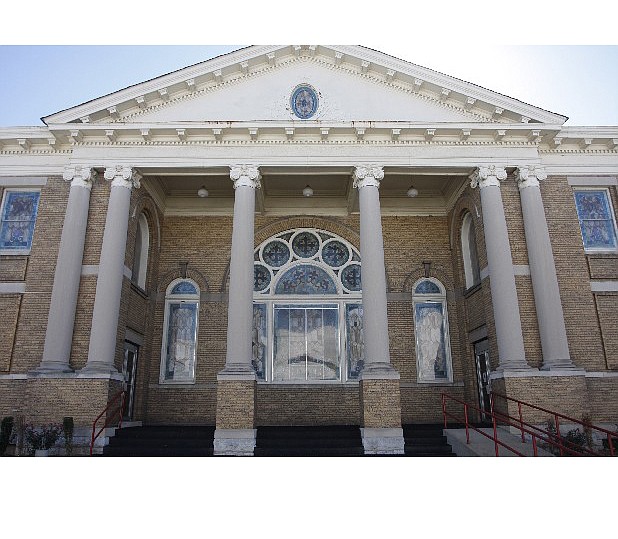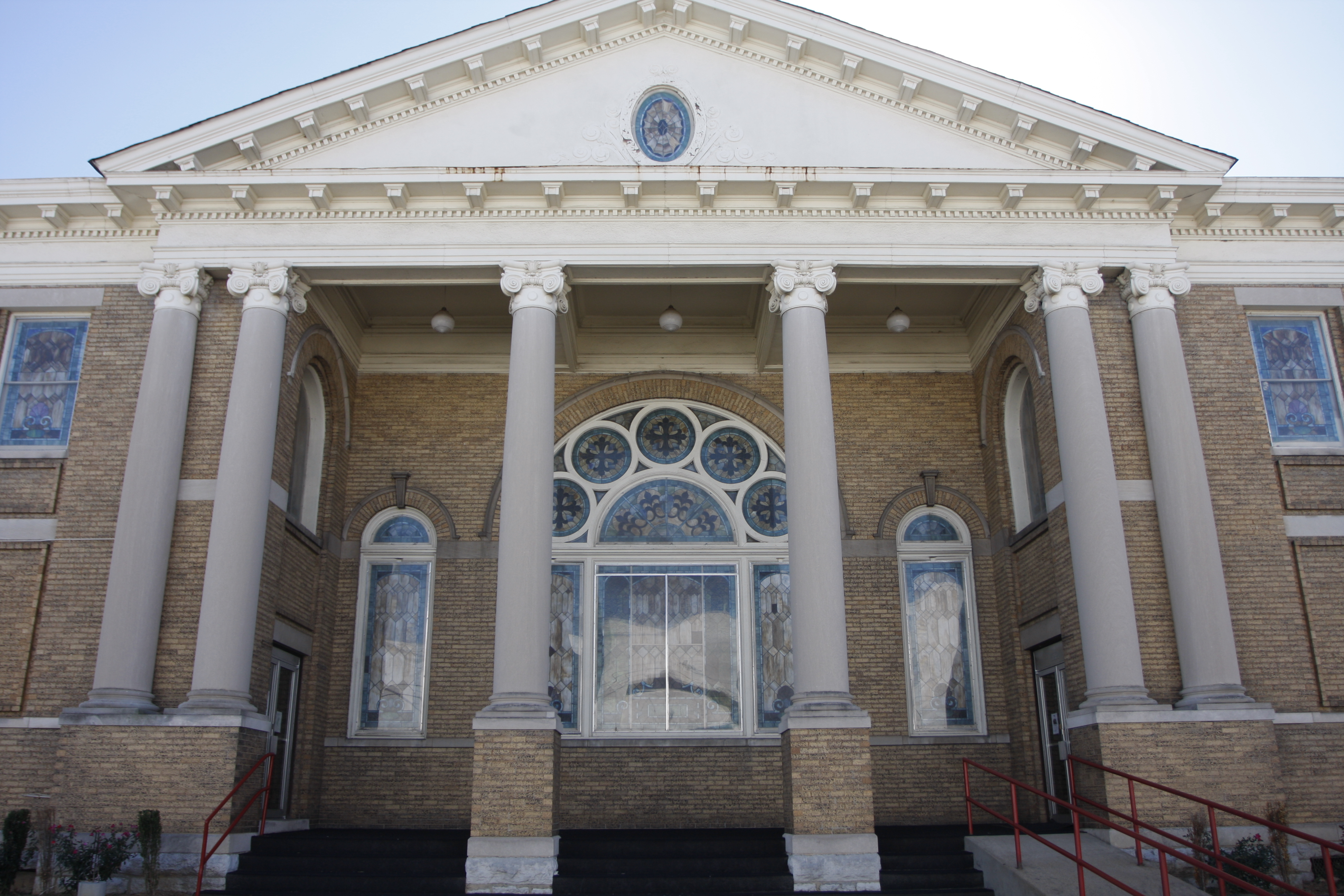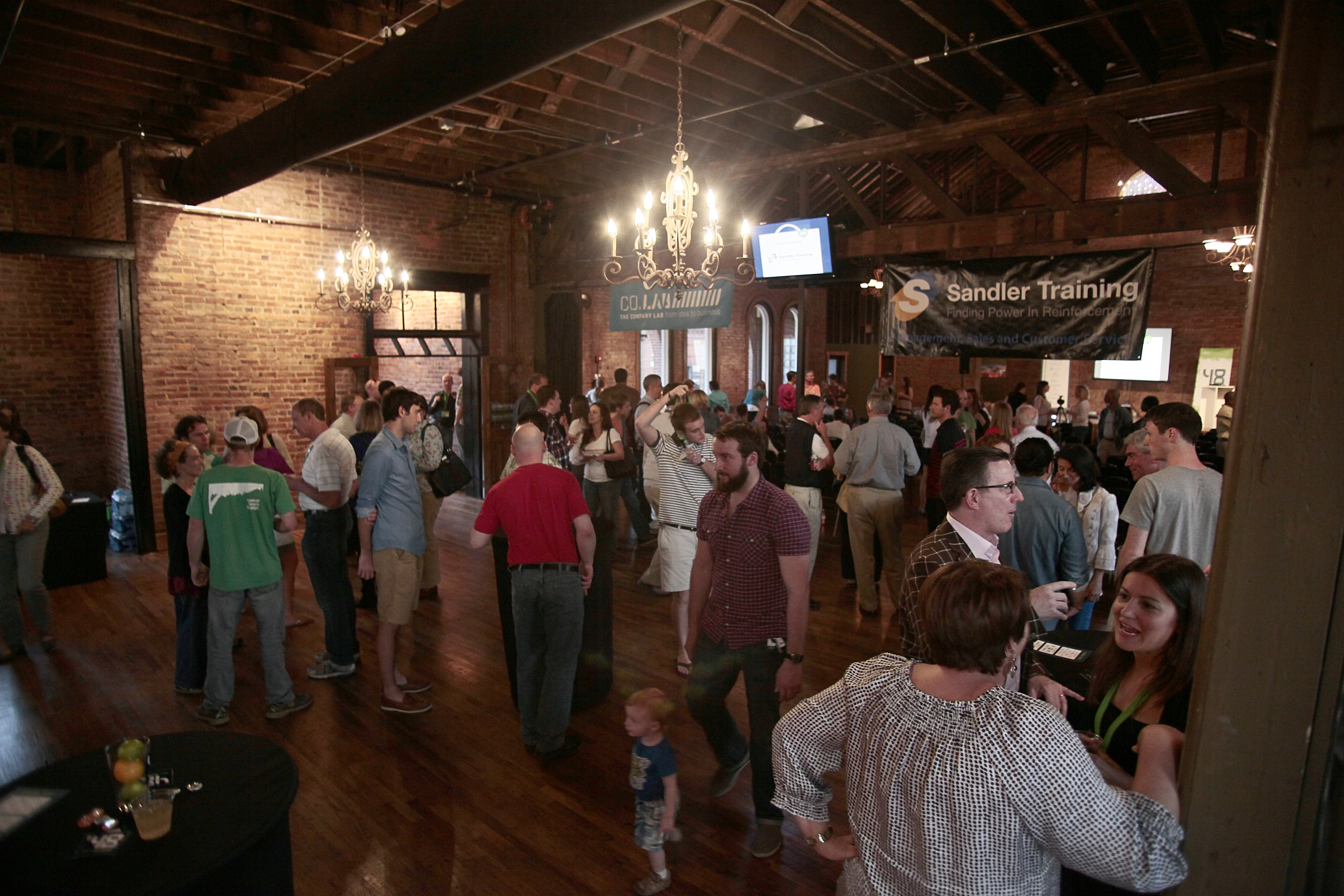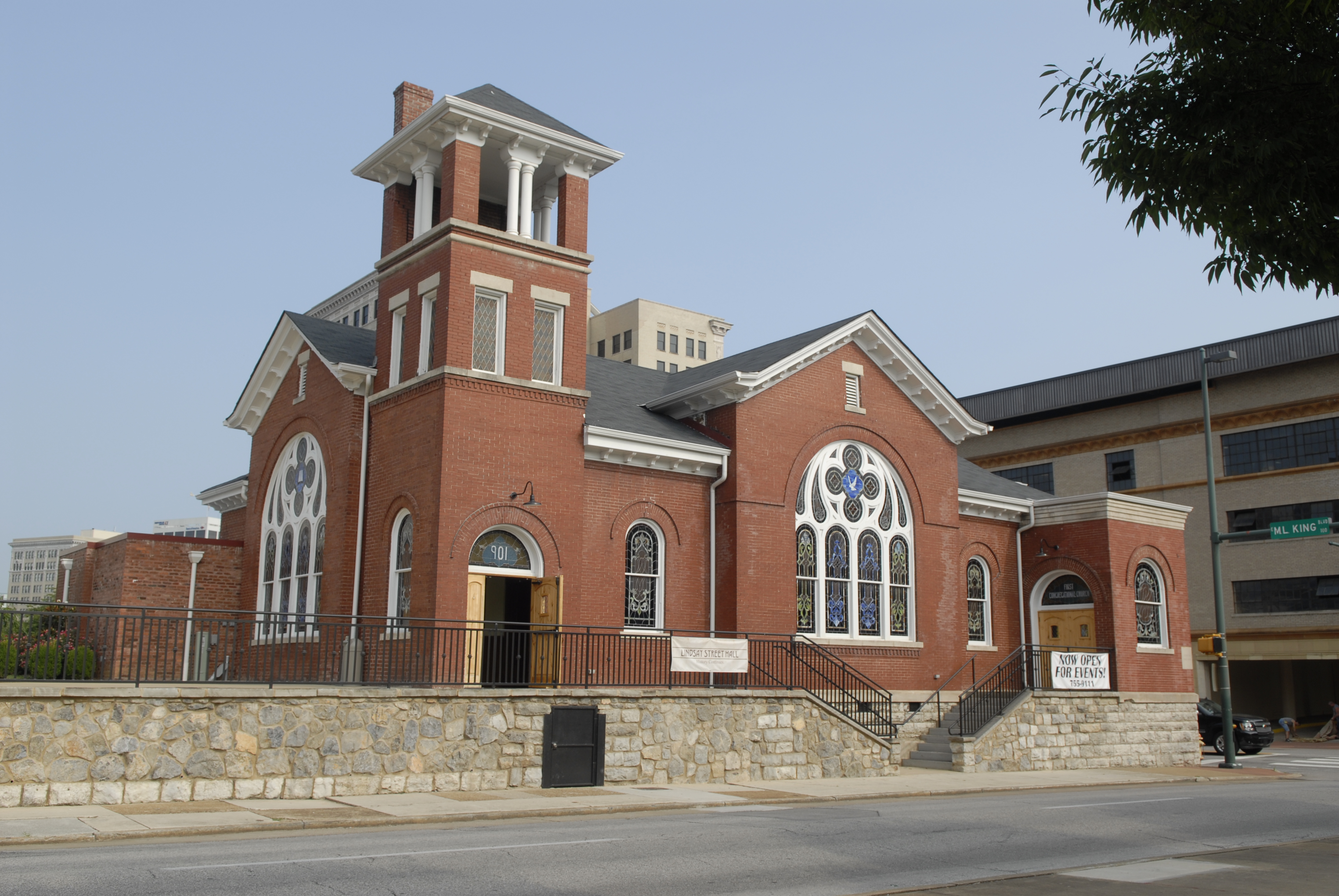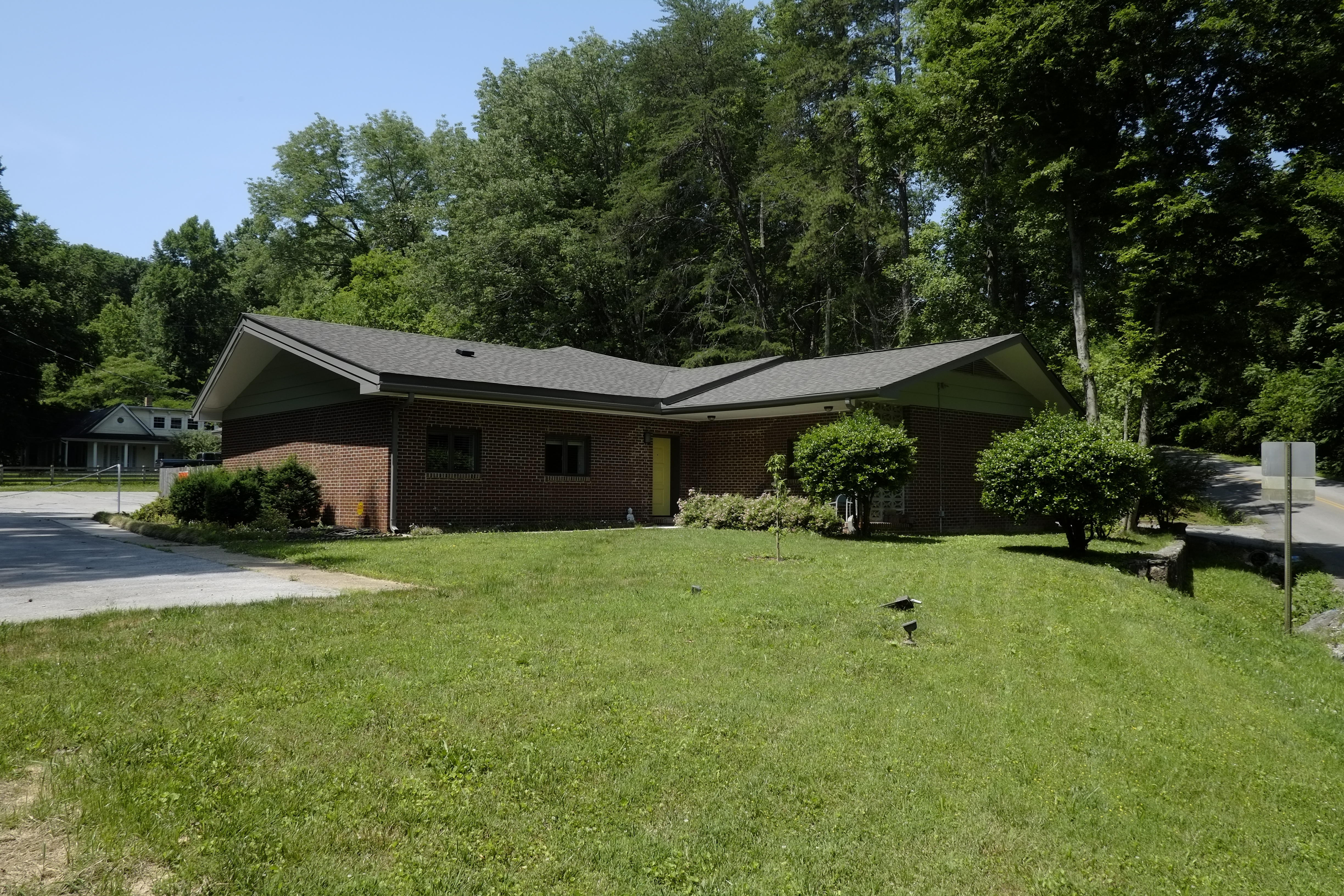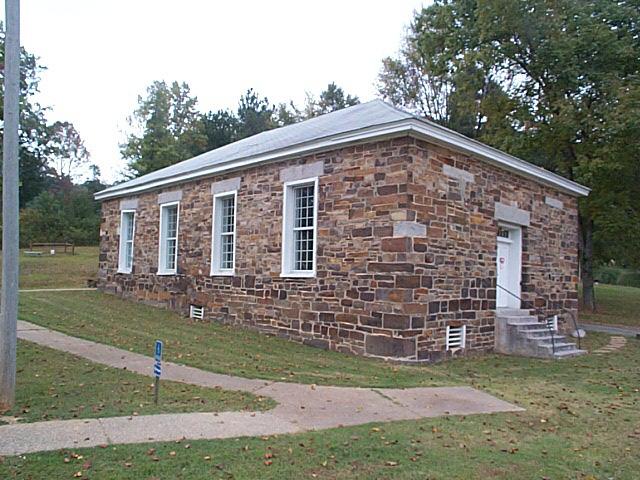HELP WITH REPURPOSINGRobert Jaeger invites leaders of churches with declining congregations or whose doors have closed, individuals interested in purchasing church properties or city officials looking for "a bigger solution" for these historic properties to contact Partners for Sacred Places at 1-215-567-3234 or online at www.sacredplaces.org.Adaptive reuse in the regionCLEVELAND, TENN.Lee University purchased the former property of First Baptist Church of Cleveland through a gift from the Allan Jones Foundation, with plans to renovate the main sanctuary into a performance hall. Other plans for the property include the construction of a new academic building and the demolition of a building that formerly housed retail space in downtown Cleveland to make a new greenspace.The former South Cleveland Church of God on South Ocoee Street has been renovated into Hiwassee Mental Health Center.DAYTON, TENN.My Father's House on California Avenue has been converted into Rhea County Academy, a private K-12 Christian school.RINGGOLD, GA.Chickamauga Presbyterian Church members built its square stone building in 1850, using handhewn stone quarried from Stubblefield Farm at the base of White Oak Mountain -- thus its name: Old Stone Church. During the Civil War, the church was used by Union and Confederate forces as headquarters and a hospital. Legend has it that the pews were placed facing each other to serve as feeding troughs for the Union Army's horses. Also of interest, the first performance of the famous gospel hymn "Leaning on the Everlasting Arms" was sung in the Old Stone Church.In 1995, the Catoosa County Historical Society acquired the building on Old Catoosa Road and restored it. It now is a museum of Civil War memorabilia open to the public on designated days.
When Robert Morris sent his wife, Alison, to Chattanooga from Atlanta to find them a house, he didn't expect her to pick out a 100-year-old church in the Southside.
"Literally, the first time we pulled up, he stopped the car and looked up at the overgrown yard, the building with broken windows and graffiti and said, 'My crazy wife,'" Alison laughs.
But the former home of St. James United Methodist Church on Rossville Avenue had solid bones, original oak floors, and they loved the location, she says.
"Originally, I thought we would renovate it, live in one part and use the other part for an event venue," says Alison. "But as time transpired, he convinced me there wasn't enough space to do both."
After a three-year renovation, the former church property was reborn as The Church on Main event hall. Since the Morrises reopened the space in 2012, it has been the site of weddings, rehearsal dinners, nonprofit fundraisers and business meetings.
Restoring and repurposing church properties is a green initiative known as "adaptive reuse," says Ann Gray, executive director of Cornerstones Inc., Chattanooga's historic preservation nonprofit.
"One of the interesting things about historic preservation is that they [church buildings] very much embrace the concept of adaptive reuse," says Gray. "They were built for an original purpose; now that purpose has changed, but that building is still sound to use.
"Churches were built for public community gatherings, and through adaptive reuse they are still being used for that same purpose with a twist. That's why we accept it so easily," Gray explains.
It's an accelerating trend nationwide, according to Robert Jaeger, president of Partners for Sacred Places in Philadelphia, Pa. Jaegar says his agency focuses on helping congregations find the means to keep their older properties productive and useful.
Jaeger says that, while his agency's purpose was to help congregations before they closed the church doors, he now sees an increase in congregations that close and leave empty buildings. Several factors contribute to the situation, he says, including decline in church attendance, local economy and larger denominational trends.
Repurposing churches is a national trend most prevalent in the Northeast, Midwest and far West, but is only showing up in parts of the South, he says. Down here, aka the Bible Belt of the country, "churches are a little stronger, and we don't see decline in membership as often," he says.
The nonprofit president says churches are often "the best buildings in terms of architecture" so preserving them maintains an important part of a city's heritage and preserves its streetscapes.
Artists Jan Chenoweth and Roger Halligan just finished the renovation of a former Jehovah's Witness Kingdom Hall into their new home and future studio. Chenoweth says she happened upon the property while driving through the White Oak neighborhood in Red Bank.
"It had trees, almost an acre of land and lots of parking. It didn't look 'churchy,' but more like a home from the mid-1960s," she describes.
The couple had to totally gut and renovate the interior -- it had no kitchen and just the men's and women's restrooms. They replumbed, rewired and reroofed. The brick facade, they discovered, was laid over concrete block, which was topped inside by wood paneling then wallpaper. So they tore out all the interior walls, hung drywall and painted.
The couple moved in less than a month ago and is already making plans for studio space.
"I don't think many home studios have 33 parking places and even their own handicapped parking," Chenoweth jokes.
Contact staff writer Susan Pierce at spierce@timesfreepress.com or 423-757-6284.
